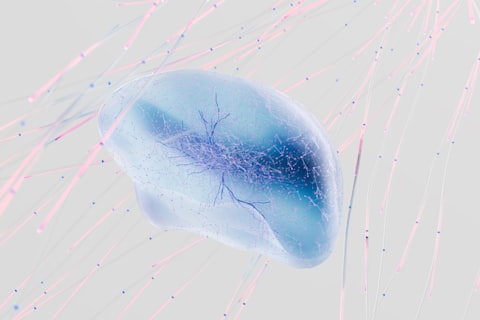The Intricacies of the Human Nervous System: Unraveling the Wonders of Neurological Complexity
The Intricacies of the Human Nervous System: Unraveling the Wonders of Neurological Complexity
Keywords
Human Nervous System Neurological Complexity Neuronal Communication
Anatomy of the Nervous System
The human nervous system is divided into the central nervous system (CNS) and the peripheral nervous system (PNS), each with distinct functions and structures.
- CNS: Comprises the brain and spinal cord.
- PNS: Includes all nerves and ganglia outside the CNS.
Neuronal Communication and Signaling
Neurons communicate through synapses using neurotransmitters and electrical impulses, which are crucial for sensory information transmission and cognitive processes.
- Synaptic Transmission: The process of signal transmission between neurons.
- Neuroplasticity: The brain's ability to reorganize and adapt.
Sensory Perception and Motor Control
The nervous system integrates sensory information and coordinates motor responses, which are essential for interaction with the environment.
- Sensory Integration: Interpretation of sensory stimuli by the brain.
- Motor Coordination: Management of muscle movements and balance.
Autonomic Regulation and Homeostasis
The autonomic nervous system manages involuntary functions and maintains internal balance in response to external changes.
- Sympathetic and Parasympathetic Divisions: Regulate physiological arousal and relaxation.
- Homeostatic Control: Ensures the stability of the body's internal environment.
Cognitive Functions and Emotional Regulation
The cerebral cortex and limbic system are involved in cognition, memory, and emotional processing.
- Cognitive Processing: Higher brain functions like reasoning and language.
- Emotional Regulation: Influences on emotions, motivation, and social behavior.
Neurological Disorders and Health
Neurological disorders highlight the nervous system's vulnerability and the need for research and healthcare interventions.
- Neurodegenerative Diseases: Affect cognitive function and motor control.
- Psychiatric Disorders: Reflect the complex relationship between neurological and psychological factors.
Conclusion: Embracing the Wonders of Neurological Complexity
Understanding the human nervous system is crucial for appreciating human physiology, health, and the impact on our lives.
<divider>Figures
Logical Flow/Concept:




تعليقات
إرسال تعليق